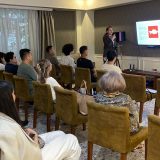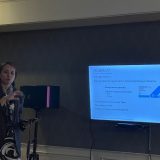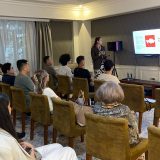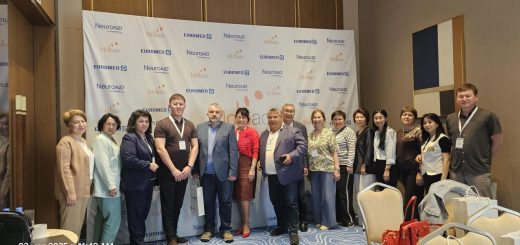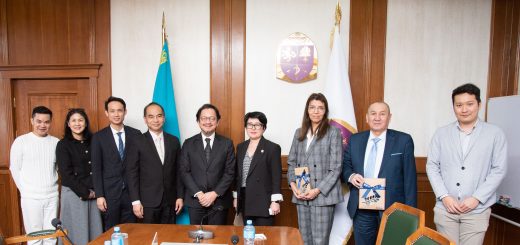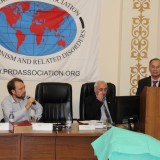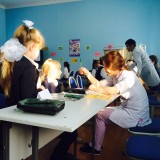Raising Awareness of Alzheimer’s Disease: Educational Meeting for Primary Care Physicians and Neurologists
On June 10, a professional meeting dedicated to one of the most pressing topics in modern neurology — Alzheimer’s disease — took place. The event was initiated and led by Dr. Radmila Timsonovna Tsoy, neurologist, PhD, and Assistant Professor at the Department of Neurology of KazNMU.
The purpose of the event was to raise the level of awareness and clinical vigilance among primary healthcare (PHC) physicians and neurologists regarding the early detection and diagnosis of Alzheimer’s disease. Special attention was given to modern clinical criteria, screening algorithms, and the pivotal role of family doctors in the early referral and routing of patients.
The lecture covered key aspects such as the stages of disease progression, differential diagnosis with other types of dementia, current international guidelines for patient management, as well as approaches to multidisciplinary collaboration. A particular emphasis was placed on the fact that timely identification of early signs of cognitive decline begins at the PHC level, and the competence of physicians in this sector largely determines the effectiveness of the entire care system.
For many years, the Department of Neurology at S.D. Asfendiyarov Kazakh National Medical University has been systematically addressing the issues of dementia and neurodegenerative diseases, including Alzheimer’s disease. This work is carried out under the leadership of Professor S.T. Turuspekova, Doctor of Medical Sciences, Head of the Department, and Chief Freelance Neurologist of the Ministry of Health of the Republic of Kazakhstan. Thanks to the support of the department’s leadership, it is possible to conduct high-level educational events for physicians of various specialties.
The participants of the meeting warmly welcomed the presented information. Many doctors noted that the lecture was not only informative but also inspiring, allowing them to gain a new perspective on the role of PHC in combating dementia. The attendees especially appreciated the clear structure, relevance of the examples, and practical focus of the material. Throughout the discussions, there was a genuine interest and a desire to implement the newly acquired knowledge into clinical practice.
The event took place in a warm, professional, and emotionally engaging atmosphere. The department will continue to pursue initiatives aimed at raising awareness of dementia and fostering professional dialogue within the medical community.



